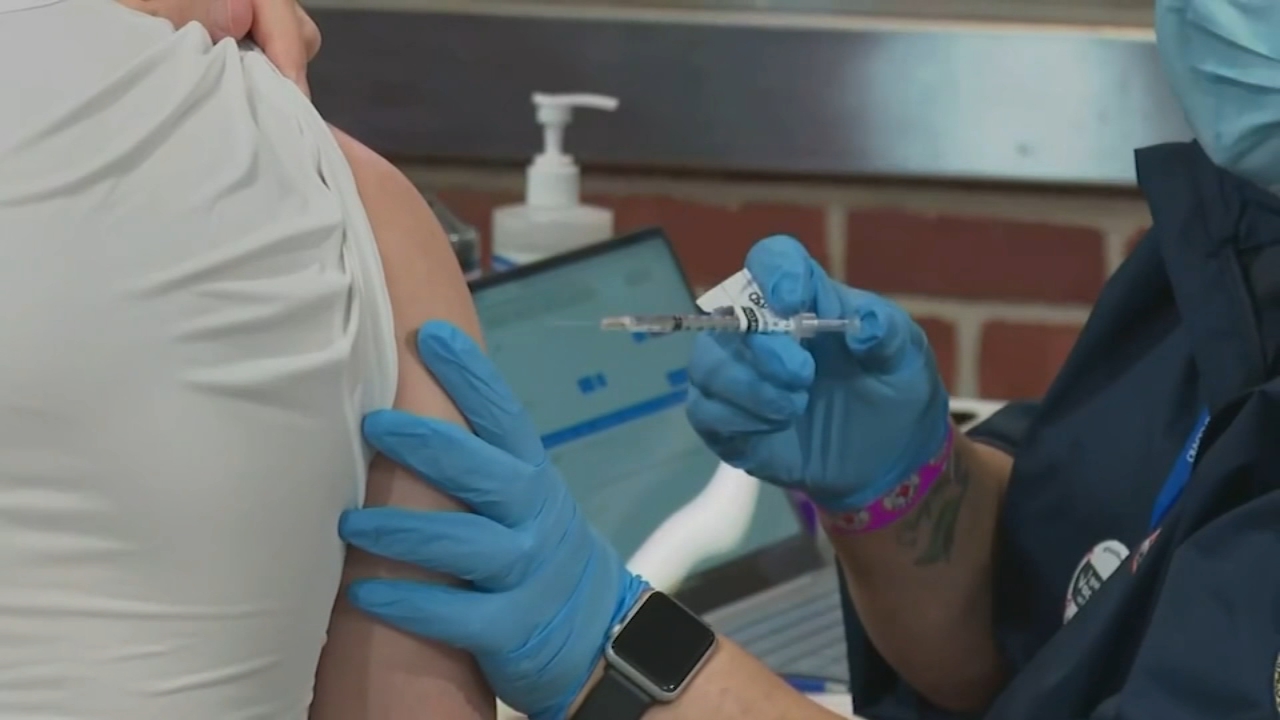Doctors suggest we should have waited longer between doses of Pfizer, Moderna vaccines

SAN FRANCISCO (KGO) -- Pfizer released new data Wednesday indicating vaccine efficacy starts to decline around five to six months after the second dose, not eight months as originally thought.
It's raising questions if the three to four week gap between doses for Pfizer and Moderna was long enough to make the second shot the most effective.
RELATED: CDC study shows COVID vaccine less protective against delta
"If this was a slow moving epidemic, you probably wouldn't have seen these three week gaps," said UCSF epidemiologist, Dr. George Rutherford. "You probably would've seen something longer."
"Why is that?" ABC7's Stephanie Sierra asked.
"Because it works better," he said. "If you have a little more space in between, you get over your primary immune reaction and then you're at the point where all your cells are primed and you can get a secondary immune reaction."
Rutherford says if we had a two month waiting period in between the first two doses of Pfizer and Moderna we may be in a little better place, but we will never know for certain.
"Who knows? But we would've tolerated a lot more cases getting that second dose," he said.
VIDEO: Bay Area doctors still urge people to get vaccinated after new data shows drop in efficacy

Rutherford says he wouldn't be surprised if a longer wait period in between doses will be recommended moving forward. Preliminary data released from Research Square Wednesday, showed a more productive antibody response from Pfizer after an eight to 16 week gap between doses - but the findings aren't yet peer reviewed.
Experts say any delay in the timeline of rolling out boosters could impact the severity of future COVID surges.
"Acting too late you're going to create a longer window of potentially waning immunity where people could get infected," said Rutherford.
J&J Boosters
COVID-19 booster shots will be here in less than a month. For those of you who received the Johnson and Johnson vaccine, should you rush to get your next shot?
"If I was a healthy 30-year-old, I don't know if I'd run out to get a booster," said UCSF Dept. of Medicine Chair Dr. Bob Wachter. "If I was 70 and got J&J, I probably would."
If you got the single-dose Johnson and Johnson vaccine at least eight months ago, should you get one or two additional doses of an mRNA vaccine?
"It may turn out two is better than one, but it really does look like one additional mRNA dose, whether that's Pfizer or Moderna, does boost your immunity up from J&J considerably," said Wachter.
RELATED: Why you shouldn't rush to get a COVID-19 vaccine booster shot
Johnson and Johnson released new data Wednesday indicating their COVID-19 booster vaccine increased antibodies nine-fold 28 days after the first shot. The study is based off the results of 17 people.
Having trouble loading the tracker above? Click here to open it in a new window. RELATED STORIES & VIDEOS:
- Map shows which counties can, can't reopen under reopening tiers
- Cheat sheet: What you can and can't do after being fully vaccinated
- How to register for a COVID-19 vaccine in every Bay Area county
- Map shows everywhere you can get a COVID-19 test in the Bay Area
- Interactive map shows what's closed and what's reopening in the San Francisco Bay Area
- Data tracker: Coronavirus cases, deaths, hospitalizations in every Bay Area county
- Third stimulus check calculator: See how much you could get
- COVID-19 Diaries: Personal stories of Bay Area residents during pandemic
- Get the latest updates on California EDD, stimulus checks, unemployment benefits
- Coronavirus origin: Where did COVID-19 come from?
- What is a COVID-19 genetic, antigen and antibody test?
- What does COVID-19 do to your body and why does it spread so easily?
- Coronavirus Timeline: Tracking major moments of COVID-19 pandemic in San Francisco Bay Area
- Coronavirus Doctor's Note: Dr. Alok Patel gives his insight into COVID-19 pandemic









